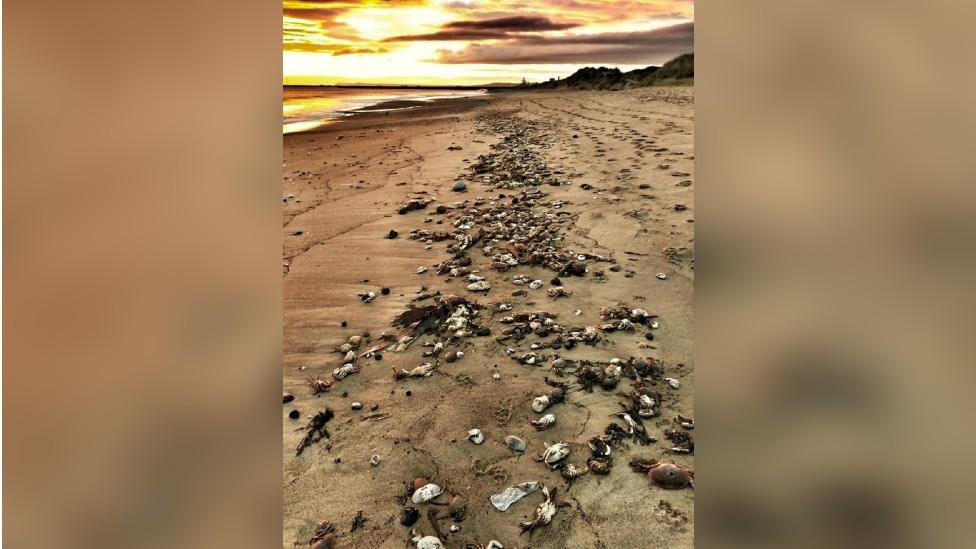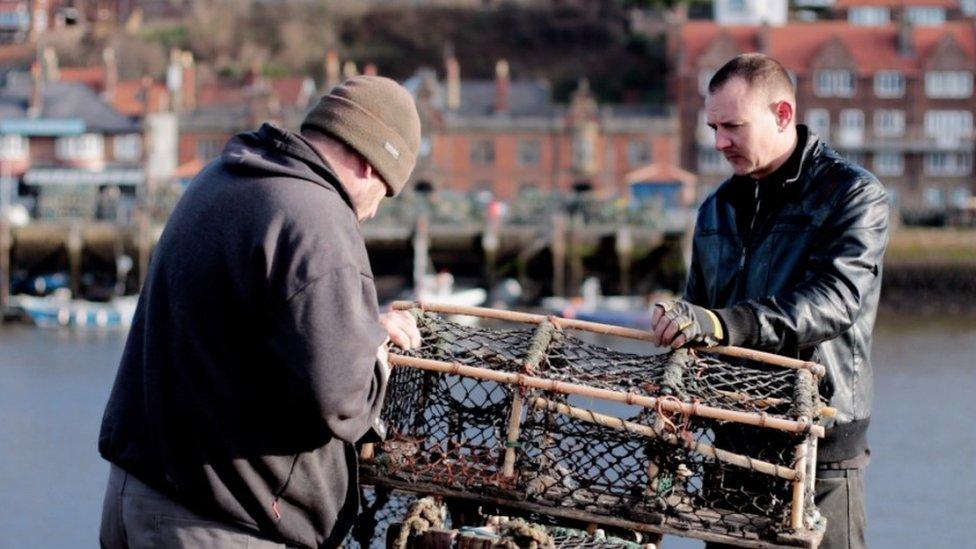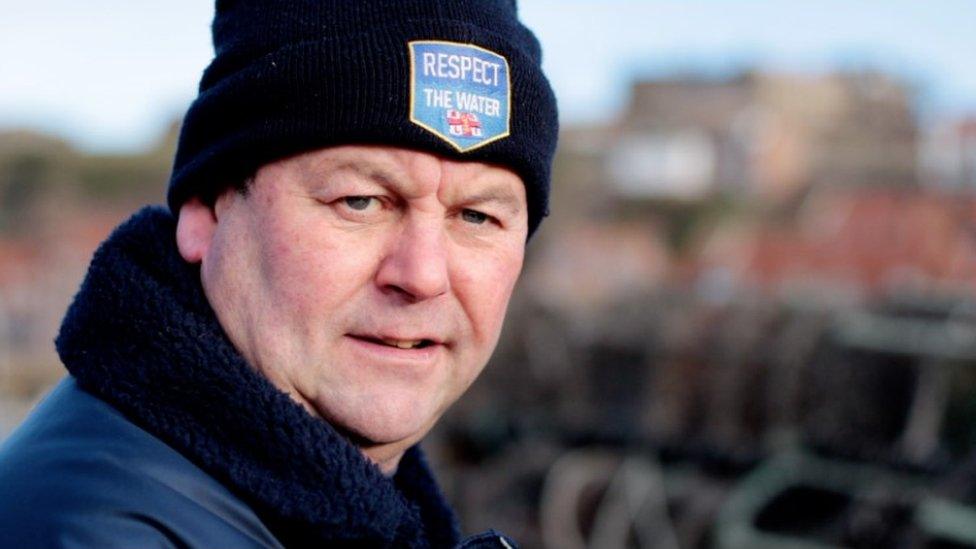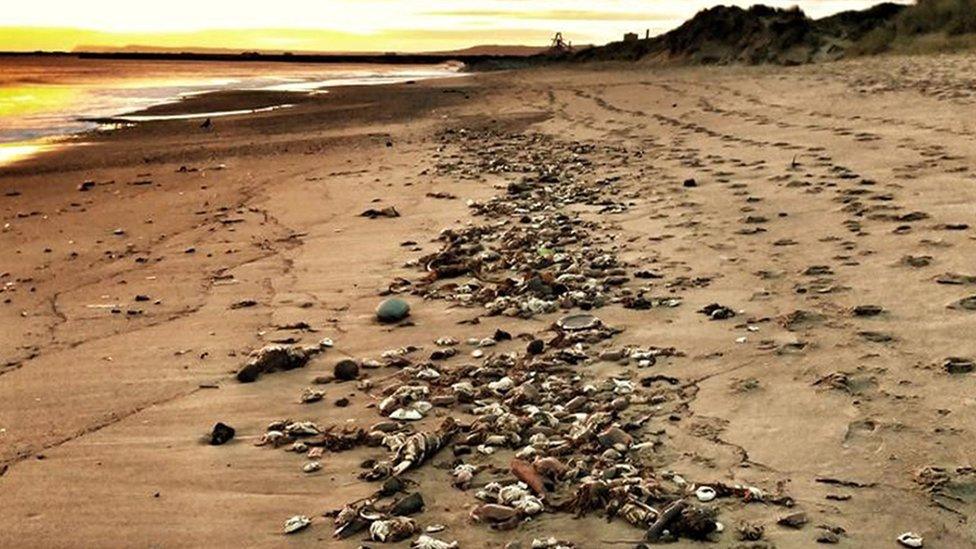North East coast shellfish deaths blamed on harmful algae
- Published

Carcasses of thousands of crabs have been found at beaches including Seaton Carew
The deaths of thousands of crabs and lobsters found washed up on beaches of north-east England have been blamed on a naturally-occurring harmful algae.
An investigation has been under way following discoveries along the coastline between October and December.
Some in the local fishing industry had feared it was linked to the dredging at the mouth of the River Tees.
But the Department for Environment Food & Rural Affairs (Defra) said results pointed to an "algal bloom".
The joint investigation - which also involved the Environment Agency, the Marine Management Organisation and the Food Standards Agency - found it was unlikely that chemical pollution, sewage or infectious aquatic animal diseases were the cause.
A review of dredging activity and water samples found no evidence of a link between the disposal of dredged sediment and the deaths.

Fishermen say the deaths have had an impact on the industry
While the chemical pyridine was initially identified in crabs in the affected areas, further investigation established that it was not present in water and surface sediment samples collected off the Tees.
As it was also found in crabs from other areas, its presence was believed to be linked to "biological processes".
Defra said that while it was no longer an active investigation, agencies would would continue to work with the local fishing industry and would remain on standby if it happened again.
It added there was no food safety risk from healthy fish, crabs and lobsters caught off the North East coast but people were advised not to eat dead or dying ones found on the beach.

Follow BBC North East & Cumbria on Twitter, external, Facebook, external and Instagram, external. Send your story ideas to northeastandcumbria@bbc.co.uk, external.
- Published21 January 2022

- Published4 November 2021
